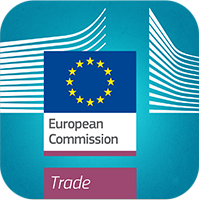Open, rules based global trade essential to Irish growth – County Wexford Chamber calls for an Action Plan for Trade to support SMEs to grow trade internationally

Chambers Ireland with the support of County Wexford Chamber today (6 November 2020) has published its submission to the European Commissioner for Trade as part of a public consultation for a revised trade strategy.
The submission calls on the European Commission to ensure that the revised strategy emphasises the importance of open, rules-based trade. In future negotiations, trade agreements must prioritise SME-friendly access, support innovation, and align with the Sustainable Development Goals.
Speaking this morning, County Wexford Chamber Operational Manager, Emma Dunphy said,
“Trade and investment have never been more important for the Irish and European economy. Throughout the last recession it helped stabilise the economy when domestic demand remained weak.
Exports have also supported the Irish economy through the past several months of COVID-19 restrictions. Ensuring that Irish companies can continue to benefit from increased access to new and existing markets around the world will be vital in the pandemic recovery period and post the Brexit transition period by sustaining growth in the years to come.
While Irish eyes continue to watch with interest as the United States decides on its next President, whatever the result may be, the US will continue to be one of our most important trade partners. It is crucial that the European Commission continues to work towards increased transatlantic co-operation in support of more open markets.
Closer to home, we’ve been working closed with the Tánaiste and officials as part of the SME Growth Taskforce. Improving the internationalisation of SMEs is critical if we are to improve the productivity of small and medium enterprises. While making up more than 99.7% of active enterprises, they are responsible for less than 20% of national output, and more significantly, less than 6.3% of SMEs export anything, putting Ireland at the lowest level among all 36 OECD members.. At minimum we need to do more to improve SME trade within the Single Market and boost investment in programmes like the Enterprise Europe Network.
Beyond the EU Single Market, SME engagement with free-trade agreements is particularly poor and we believe there is an opportunity to drastically improve this. The reality is that even in the best-case scenario, Irish businesses will find its trading relationship with the UK to be fundamentally different after 1 January 2021.
Even if a free-trade deal is successfully negotiated, Irish businesses will have to navigate new customs requirements, rules of origin and non-tariff barriers. It is our view that we should invest in a national strategy and campaign to improve the capacity of SMEs to engage with and benefit from FTAs. Through the development of an online one-stop-shop, there is huge potential to train business on customs procedures and raise awareness of new markets.
Learning from our experience in Brexit supports to businesses, a nationally implemented Action Plan for Trade, that is properly resourced, should target SMEs who may only casually trade and support them to think more globally.
Ireland’s ability to benefit from the huge negotiating strength and resources of the EU’s trade and investment infrastructure continues to lead to ever greater export opportunities across the globe, providing new markets to counter the uncertainties prevailing in some of our traditional markets.
In a post-Brexit world that is navigating the COVID-19 recovery, an ambitious, progressive European trade strategy will support Irish business to diversify, compete and remain resilient.”
-Ends-
